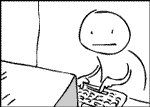Stephen Wilson, Associated Press
Published: Sunday, February 19, 2006
Source
TURIN, Italy -- Italian authorities seized materials in a surprise late-night sweep through the living quarters of the Austrian biathlon and cross-country teams, the first ever police anti-doping raid on Olympic athletes.
While Italian police searched the residences late Saturday and early Sunday morning, the International Olympic Committee also conducted unannounced, out-of-competition drug tests on at least six Austrian cross-country skiers and four biathletes. Col. Angelo Agovino, commander of the Carabinieri police force in Turin, said later Sunday that officers "confiscated material of various origin . . . which will have to undergo laboratory analysis."
No test results have been announced, and the Austrian cross-country relay team competed Sunday morning in the men's 4x10km relay, finishing last out of 16 teams.
"We were surprised in our room," team member Juergen Pinter said. "Suddenly the police came in and didn't let us leave on the night before the competition. This happened without any positive result from doping control in the team. There's definitely no doping in the Austrian team. It's crazy."
The probe began when the World Anti-Doping Agency discovered blood-doping equipment in Austria connected to Walter Mayer, an Austrian Nordic team coach banned from the Olympics for suspicion of performing blood transfusions at the 2002 Salt Lake City Games.
WADA learned that Mayer was with the team at the Turin Games and notified the IOC.
"The fact he was in the same area as the athletes created quite some concern to us," IOC medical commission chief Arne Ljungqvist said Sunday.
The IOC tipped off Italian police to Mayer's presence. In separate operations, IOC drug-testers went to the Austrians' lodgings - outside the official athletes' villages - to conduct surprise tests while Italian police swept in to look for drugs and doping equipment.
"We never asked the Italian police to take action," Ljungqvist said. "We informed them that we would conduct testing on the evening of the 18th and they decided to take action at the same time."
Mayer was not found during the overnight raids in the mountain hamlets of San Sicario and Pragelato, where the Nordic teams are staying. He was no longer in Italy as of Sunday, said Mario Pescante, IOC member and government supervisor for the Games.
"It's true that Walter Mayer slept in our accommodations here the night after he arrived, but only then," said Alfred Eder, a trainer for the Austrian biathlon team.
Mayer and Volker Mueller, the German chiropractor who prescribed blood treatments in 2002, were banned by the IOC from the Turin Olympics and the 2010 Vancouver Games.
At a news conference Sunday, Ljungqvist held up a photograph showing Mayer in an official Austrian Olympic biathlon team photo.
He said the IOC had information that Mayer had been staying at lodgings "adjacent to if not included in the Austrian Olympic ski team." While Mayer's presence in Italy didn't break the IOC ban, it violated the "spirit" of the decision to keep him out of the Games, Ljungqvist said.
"He has no Olympic accreditation and the IOC can do nothing about how and where he travels," he said.
Despite the ban, Mayer remains head coach of both the cross-country and the biathlon team, said Austrian cross-country spokesman Eric Wagner. He said Mayer had been at the Games in private capacity and contacted the team as recently as Saturday.
Ljungqvist said the IOC had no information on the result of the police raid and investigation.
"We will wait for the results of the raid with great interest," he said.
The results of the IOC doping tests on the Austrians would be known within two days. The athletes took urine tests covering the "full menu" of banned substances, including the endurance-enhancer EPO, he said.
The Austrians reacted angrily to the raids, saying the athletes were treated "like criminals."
"They checked every drink, every food, and they took a lot of stuff with them," Wagner said. "They came around 9 and stayed until 12, and then took the athletes away to be tested."
Ljungqvist said the athletes co-operated with the testing, and he dismissed complaints from some Austrian officials that the raid was unwarranted.
"'It was perfectly necessary," he said.
IOC president Jacques Rogge met with Austrian Olympic officials Sunday to discuss the situation.
"We're here in order to protect the athletes," said Heinz Jungwirth, secretary general of Austria's Olympic committee. "We raised an objection with the IOC and will proceed against this with all means at our disposal."
WADA chairman and Montreal lawyer Dick Pound said he wasn't surprised by the Austrians' protest.
"On the other hand they've been playing with fire in having an association with this guy," he said.
Pound also defended the decision to conduct the raid and tests in the late-night hours.
"If you happen to be concerned about microdoses of EPO, that's the time to find it," he said.
The Turin Olympics feature the most rigorous drug testing in Winter Games history. Earlier in the week, a Russian biathlete was stripped of her silver medal and expelled from the Olympics after testing positive for an illegal stimulant.
The involvement of Italian police is in line with the country's anti-doping laws, which treat doping as a criminal offence. Any doping case would be investigated and prosecuted by Italian magistrates.
While police are not expected to go into the athletes' villages to make random searches, they are free to do if they have information of drug trafficking or dealing.
© Associated Press 2006
Sunday, February 19, 2006
Subscribe to:
Post Comments (Atom)


No comments:
Post a Comment